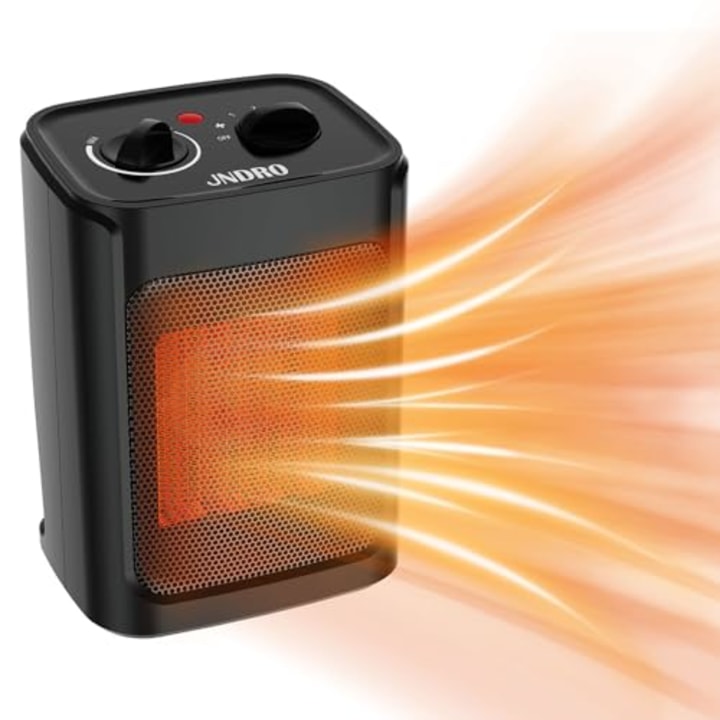1 Source Portable Air - The Facts
1 Source Portable Air - The Facts
Blog Article
All About 1 Source Portable Air
Table of Contents5 Simple Techniques For 1 Source Portable Air1 Source Portable Air Can Be Fun For Everyone1 Source Portable Air Can Be Fun For Everyone4 Simple Techniques For 1 Source Portable AirFascination About 1 Source Portable Air

The only scenario in which a space heating system is environmentally friendly or energy reliable is when it's used to reduce the amount of energy a main home heating system utilizes. If you work from home, utilizing an area heater can be a good way to maintain your workplace comfy without heating up the unused areas in the rest of the home.
In general, one square foot of room calls for regarding 10 watts of electrical power to heat, which means that a room heater operating at its maximum output can heat up a room no bigger than 150 square feet. According to the National Fire Protection Association, space heaters and heating cooktops was in charge of the biggest shares of losses in home heating tools fires from 2018-2022, accounting for virtually half of the fires.
:strip_icc()/GettyImages-1390275521-17ac0280256e4687a862ba53775d9cc4.jpg)
The Definitive Guide for 1 Source Portable Air
DON'T make use of an expansion cord or power strip with an electrical area heating system. It can cause the system to get too hot and provides a tripping hazard. DO maintain the area heating unit away from flammable objects (3 feet is an excellent guideline). DON'T run a room heater's cord under carpets or furniture, which can enhance the risk of fire.
DON'T use a room heater if the cable seems harmed or is hot to the touch. DO location the space heating system on a difficult, degree, nonflammable surface area. While it is necessary to just operate room heating systems at once and in a place where they can be kept track of by a responsible adult, there are a variety of safety features that can offer you added tranquility of mind.
Automatic shut-off in the event of overheating. A thermostat that keeps track of the indoor temperature. Independent accreditation (such as UL) suggests that the item has actually been examined and satisfies particular clinical safety and security, high quality, or protection criteria. Cool-touch housing, to avoid unexpected get in touch with burns. Numerous temperature setups will certainly enable you to choose the most affordable temperature for your requirements, so you're not paying more to overheat your area.
1 Source Portable Air Can Be Fun For Anyone
It do without saying that you need to guarantee your smoke alarm remain in great functioning order before using any different warmth source. Only heating units with GFCI plugs that are rated for use in wet areas must be utilized in bathrooms.
Small space heaters are usually utilized when the primary heater is not available, insufficient, or when central home heating is also costly to set up or run. Sometimes, tiny room heating systems can be cheaper to utilize if you just intend to warmth one space or supplement inadequate home heating in one area.
Tiny area heaters function by convection (the circulation of air in a room) or great site radiant heat. Glowing heating units produce infrared radiation that directly heats objects and individuals within their line of view, and are a more reliable choice when you will be in an area for just a couple of hours and can stay within the line of sight of the heater.
Safety and security is a top consideration when making use of small area heating units. The U.S. Customer Product Safety Commission estimates that greater than 1,700 residential fires yearly are connected with making use of area heaters, causing even more than 80 deaths and 160 injuries across the country - 1 Source Portable Air. Room heating system capacities generally range between 10,000 Btu and 40,000 Btu per hour, and commonly run on power, propane, gas, and kerosene (see timber and pellet home heating for details on wood and pellet ovens). When buying and setting up a little area heating unit, follow these standards: Newer design small room heating systems have existing safety functions.
The smart Trick of 1 Source Portable Air That Nobody is Talking About
Choose a thermostatically controlled heating unit, since they prevent the power waste of overheating a space. Select a heating system of the proper size for the space you desire directory to warm. Do not purchase large heating systems. Many heating systems come with a basic sizing table. Locate the heater on a degree surface area away from foot web traffic.
An area heating system is a device utilized for heating areas and confined rooms. 1 Source Portable Air. It can be utilized inside or outside, however most require an outlet close by as an energy source. Many area heaters are electrical, however some outside models use gas or propane. They can be found in different shapes and sizes.
Nowadays, they feature safety and security features that automatically shut down the tool when any kind of tipping or water is found. Area heating units can be used along with your home's existing heating systemlike radiators or required airor as a standalone heating source in an area without any type of built-in heat resource.
The Definitive Guide to 1 Source Portable Air
These heating units are filled up with oil and have steel fins to radiate the warmth. They are usually called "radiator heating units" due to the fact that they look like conventional radiators located in older houses.
An additional pro is that they're peaceful, find out here unlike fan-based area heating systems. Tipping is an especially common fire risk, but many more recent area heating units have an automated shut-off when tipping is detected.
Report this page